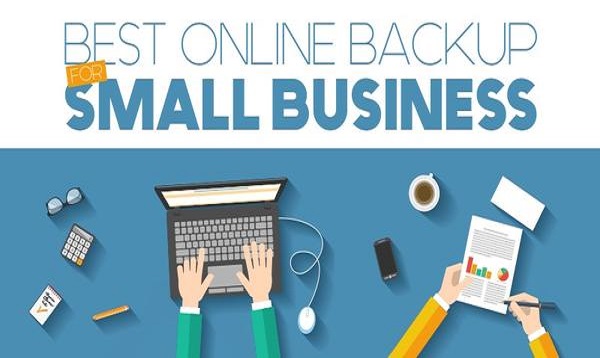Even a casual look at news or reports concerned with cyber attacks is enough to underline significance of adopting cyber-security measures. Small businesses need to design a robust strategy for data backup for ensuring business continuity in the event of cyber attacks.
Significance of data loss prevention measures
Loss of revenues can be as high as twenty percent and more if your business falls prey to cyber attacks. In fact, four out of ten businesses are sure to suffer massive losses and the number of businesses that are hit by cyber attacks is reported to be 29 percent as per recent cyber-security survey.
Worse still, your business stands to lose hard earned customers as well. This also includes loss of business opportunities on account of a downtime or a data loss scenario.
Your small business can suffer heavily in terms of its reputation because in majority of cases, a public scrutiny is sure to follow a cyber attack or an event that have caused data breach. It is not just customer or revenue loss. Your business can also suffer on long term basis because of loss of loyal customers.
Business data needs to be protected not only from ransomware or other types of cyber attacks. Your mission critical business data can also be lost due to physical disasters. If your business is not well-equipped with measures that protect critical data, then a single cyber threat can destroy your venture in no time.
Key features of business backup
Backup is simply copies of data files in any device such as a computer that are stored in a storage device at different location. These copies of data can help you retain business continuity even after suffering a major data breach or cyber attack.
The simplest form of backup is a disc or thumb drive that holds limited amount of data. External drives can serve as tools to store and carry moderate volumes of data backup files. You need to use at least two types of storage formats for storing two copies of backup files. Third copy can be stored at a remote location such as cloud storage.
Hard drive for manual backup
External hard drives present a very convenient and affordable method of backing up important files. If your business relies on a small setup or if you are running a proprietary firm then an HDD can serve you well. Ideally you should allocate one HDD for every computer in the office.
Hard drive should provide enough room for present and future data storage needs. The important advantage of using external hard drive for backup is its affordability and security. Hard drives are immune to online hacking since these need to be physically accessed for any operation.
However, hard drives can be difficult to manage if your business in generating exponential volumes of data. It can be difficult to maintain multiple hard drives in such cases. If you are keeping hard drives in office premises, then these are equally subjected to threats of natural disasters. In order to access or upload data on hard drive, you must have a physical access. No remote data access is allowed in case of hard drive.
NAS devices for easy accessibility
This brings us to the next level of data backup devices, which are known as network attached storage devices that are perfect for medium sized businesses. NAS is suitable for network accessibility because it allows sharing and storage of business data across business network. Storage capacity of these devices can be increased by using storage expansion slots to add more and more hard drives to the system.
Whether you propose to design an onsite or an off-site backup system, NAS is a right backup platform that facilitates online syncing. Affordability is a key feature of network attached storage as you will not incur any ongoing costs. However, the upfront costs can be slightly higher in comparison with HDDs. These devices should be used by technically proficient users.
Cloud based backup solutions
Thanks to the advent of cloud Hosting technology, now even small businesses can leverage cloud backup solutions to gain extensive scalability and control in terms of data backup files. Cloud data backup allows real time and automated backup at scheduled time intervals.
The space for data storage is proportional to the plans and reputed service providers offer a wide array of cloud data backup plans to suit businesses of all sizes. The most salient feature of cloud data backup is elimination of upfront capital expenditure for purchasing storage equipment.
Since the data backup process is managed by expert staff at cloud data centers, you can reduce employee costs related with backup storage management. Cloud data backup offers seamless access from remote locations to free you and your field staff from the office environment. The backup can be performed from any internet enabled device from any location.
In conclusion
Data backup is an essential requirement for small as well as large enterprises. Ideally, an integrated solution consisting of cloud and NAS or external HDD should be considered for better data availability and greater accessibility.
For Interesting Topic : How Important are File Backups Today?






 Live Chat
Live Chat